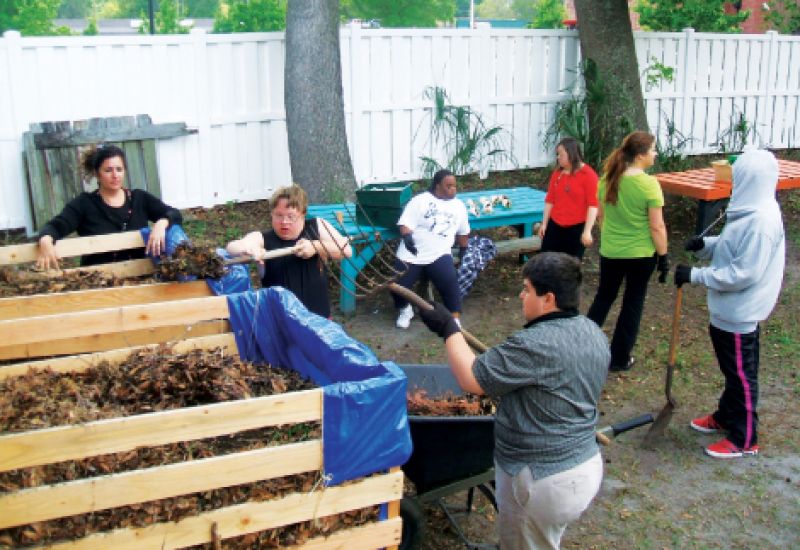
“Everybody has something they can contribute to the community,” says local parent Mary Tutterow. Fifteen years ago, that sentiment helped drive Mary and her husband, Winn, to develop the idea for Healing Farms: a nonprofit that would help developmentally disabled young adults such as their daughter, Mary Addison, discover skills and plug them into the community.
It began as a full-scale farming endeavor in McClellanville, yet the Tutterows eventually determined that the need lay closer to Charleston’s urban areas, where hundreds of parents desperately need affordable support for their children whose disabilities leave them no options for work after high school. “Thousands of our most vulnerable citizens are on waiting lists for support services in South Carolina,” says Mary. “It’s truly a crisis.”
Changing gears, Healing Farms rented a house on West Ashley’s Yew Street in 2011. Here, 10 or more young adults are farm apprentices, learning work and life skills in the organization’s vegetable garden, cooking simple meals, exploring environmental concepts, and volunteering at other nonprofits.
Time at Healing Farms is precious to individuals such as Austin Livingston and his mother, Shirley. “I spent the whole year after he finished high school trying to figure out a constructive way to fill his time,” says Shirley, who got Austin involved with Healing Farms last summer. “Now he has his buddies who are all friendly and supportive. We’ve seen more natural smiles from Austin in the last few months than we have since he was a child.”
In the fall of 2013, a donation of tomato plants from Abide-A-While Garden Center inspired a day of salsa making in Le Creuset’s local demo kitchen. That led to the creation of Super Simple Salsa, a collaboration with Jimmy Hagood’s Food for the Southern Soul that is already helping Healing Farms move toward financial self-sustainability.
Mary hopes Healing Farms will expand with urban farms throughout the Charleston area. “If we keep them small and highly connected to the community, we can create more low cost/high impact farms quickly,” says Mary, emphasizing that Healing Farms’ goal is not just employment for each individual, but contribution. “Farming gets them outside, learning skills, and engaging with the community.”